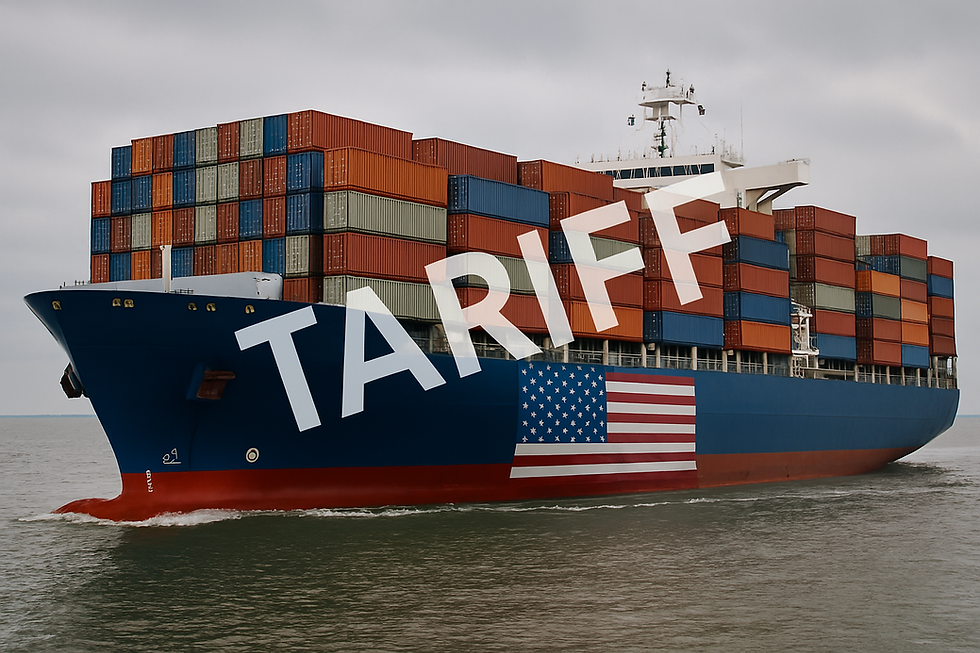U.S.–China Biotech Competition Heats Up: Congressional Report Urges Strategic Investment
- Sarp Oktay
- Apr 29, 2025
- 2 min read
Biotechnology is no longer just a sector of scientific innovation—it is rapidly becoming a cornerstone of economic strength and national security. That was the clear message from the National Security Commission on Emerging Biotechnology (NSCEB), which recently published a comprehensive, bipartisan report urging the United States to act decisively to maintain its competitive edge in biotech amid growing pressure from China.
The NSCEB’s findings—drawn from a three-year analysis—highlight a fundamental shift in how biotechnology is viewed at the highest levels of government. The report doesn't merely position biotech as a health sector priority but frames it as a strategic domain essential to national resilience and global influence.

According to the Commission, the U.S. remains a leader in biotechnology—but that lead is tenuous. While the U.S. biotech ecosystem is powered by private capital, venture innovation, and academic excellence, China has adopted a centralized strategy, ramping up public R&D spending by 400-fold over the past decade. This investment, according to the report, is enabling China to rapidly develop AI-driven drug discovery platforms and scalable biomanufacturing capabilities.
Crucially, the report doesn't advocate for a tit-for-tat approach. Instead, it encourages the U.S. to play to its strengths: a robust private sector, open research institutions, and a global network of partners and allies. Among its headline recommendations is a $15 billion federal investment over five years—designed to catalyze private capital and accelerate innovation without overly relying on subsidies or government control.
As companies and professionals in the life sciences, we may be entering a new era of opportunity and responsibility. Beyond financial support, the NSCEB urges coordinated national leadership, improved talent pipelines, and international collaboration to ensure that biotechnology can be harnessed for public good, defense readiness, and economic resilience.
What does this mean for the industry? As biotechnology becomes a strategic priority, we expect policy changes that may reshape regulatory frameworks, encourage public-private partnerships, and introduce new incentives for product development. For U.S.-based firms, this could bring expanded access to capital and infrastructure. For global players, it presents new dynamics to consider in cross-border partnerships, IP strategy, and market expansion.
As the subject matter is biotechnology that ultimately affects patients, ethical considerations naturally play a central role in the debate. As countries race to apply biotech tools—from CRISPR to AI-enabled protein design—leaders must ensure innovation aligns with safety, equity, and transparency. As John F. Crowley, President and CEO of the Biotechnology Innovation Organization, emphasized at the AI+ Biotechnology Summit, biotech must be seen not only as a driver of health and growth but as a pillar of national security.
At Sarem Consulting, we will continue to monitor how these recommendations translate into concrete policies and what that means for our clients' R&D, commercialization strategies, and international operations. Whether you are a startup navigating the regulatory landscape or a mature firm scaling globally, strategic alignment with these emerging priorities will be key.
For the full report visit:




Comments